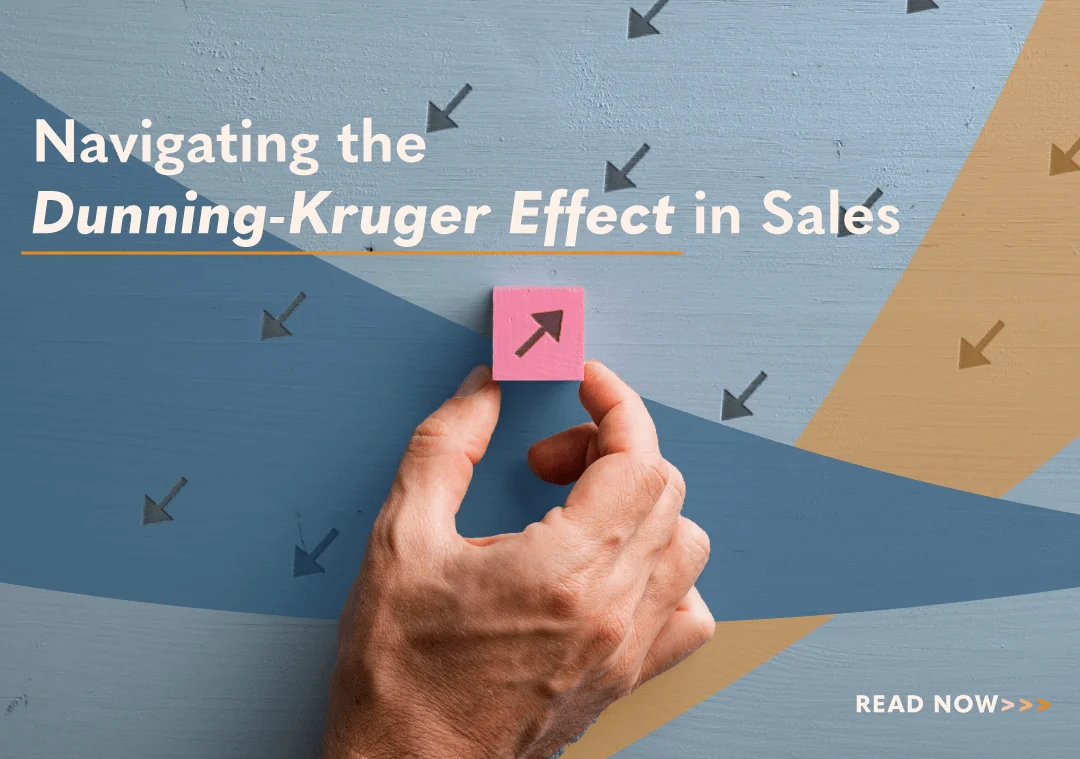Maximizing Sales Impact Through Effective Communication

To paraphrase the renowned sales guru Mark Twain, The difference between the right word and almost the right word, is the difference between telling your sales manager that the deal is dead, versus, the deal is no longer viable. Words are the hammers and nails of sales. Sales, like life, are greatly influenced by semantics. In a world where every word counts, this article takes a lighthearted human approach to wordplay. So, grab your sense of humor and prepare to save the deal, one cleverly phrased expression at a time!
In the early days of my sales career, I confidently believed I was nailing it with my choice of words. I referred to an annual contract as, well, an “annual contract.” Setup fees were simply called “setup fees.” Ah, the innocence of youth! Fast forward to today, and I wouldn’t dare utter the same phrases I did two decades ago. It’s amazing how time and experience can turn those cringe-worthy moments into valuable lessons.
When faced with a confused prospect, an upset client, or a delicate situation that requires diplomatic maneuvering, the art of wordplay becomes an invaluable skill for sales professionals. Employing clever linguistics can help lighten the mood, diffuse tension, and navigate challenging conversations with finesse. In other words, you don’t have to be perfect, just human.
Whether it’s a well-timed euphemism, a creative metaphor, or a witty phrase, wordplay can pave the way for a smoother sales process. With the power of wordplay in your repertoire, you can transform confusion into clarity, frustration into amusement, and steer your sales toward a more positive outcome.
The Power in Euphemisms
Euphemisms are linguistic gems, delicate wordplay that allows us to soften the edges and sprinkle a dash of politeness on potentially uncomfortable or sensitive topics. They serve as a linguistic escape hatch, providing a more pleasant or socially acceptable way of expressing things that might otherwise cause friction or offense. You might say they’re the magic wands of language, capable of transforming a potentially awkward conversation into a deal.
Why Salespeople Should Master Euphemisms
Picture this: You’re engaged in a sales pitch, eagerly presenting your product or service to a potential customer. Suddenly, a sensitive topic arises. Without missing a beat, you whip out a well-crafted euphemism, and voila! The tension dissipates, and a smile graces your prospect’s face.
But why should salespeople invest in mastering the art of euphemisms?
- Dance on Ice: Sales can sometimes feel like dancing on thin ice, with topics like price, delivery, or competition lurking below the surface. The best sales pros provide a graceful dance around these touchy subjects, maintaining rapport and creating a comfortable atmosphere. Is the iPad “Used” or “Refurbished” in the Apple Store?
- Softening the Blow: Disagreement is common in sales. “Is that the best you can do?” is a popular buying question from prospects. Instead of bluntly stating, “That’s my final offer,” sales reps can cushion the blow with the ’find-common-ground’ approach: “I appreciate your perspective. It sounds like you have some concerns regarding our offer. Help me understand. What options would you suggest for us to “find common ground” to move forward together?”
- Igniting the Imagination: Wordplay can spark intrigue and curiosity in the sales team for sales leaders. For next month’s new “sales initiative,” try calling it a “sales experiment” instead. You can test it with the kids this weekend. Cleaning the room is not a chore. It’s an “experiment.”
Selling is more than products or services; it’s about understanding and connecting with people. By employing euphemisms, salespeople can maintain rapport and create a comfortable atmosphere during the entire sales process. Euphemisms allow us to vividly describe situations on a human level that customers can relate to. By simplifying our language, we can enhance clients’ understanding of our message and make engaging with us easier.
Magic Metaphors
In sales, the power of metaphor cannot be underestimated. Take, for example, the iconic moment on October 23, 2001, when Steve Jobs introduced the original Apple iPod. Instead of simply stating the technical specifications, Jobs reached into his pocket, pulled out the sleek device, and uttered the memorable words, “This amazing little device holds a thousand songs, and it goes right in my pocket.”
Using the metaphor “1,000 Songs in Your Pocket,” Jobs brilliantly made visible the invisible value of the iPod and connected with consumers on a deeper, emotional level. Rather than focusing on the technical jargon of yet another mp3 player, with x-amount of storage capacity, Jobs painted a vivid picture of abundance, choice, and personalization.
By leveraging the power of metaphor, Steve Jobs communicated the essence of the iPod’s value proposition. He turned a technical device into a lifestyle accessory, evoking a sense of excitement and possibility. This approach differentiated the iPod from its competitors and established a strong emotional connection with consumers, ultimately contributing to its remarkable success in the market.
The lesson here is clear: In sales, the strategic use of metaphors can breathe life into products or services, transforming them from mere features into compelling stories that captivate customers’ hearts and minds. Here are some other popular business metaphors for salespeople:
- David Ogilvy: “The consumer isn’t a moron; she is your wife.” This metaphorical statement emphasizes the importance of understanding and respecting the intelligence and preferences of the target audience. It suggests sellers should treat buyers with the same care and consideration as their spouses.
- Bill Bernbach: “In advertising, not to be different is virtually suicidal.” This metaphorical statement emphasizes the significance of differentiation. It suggests that failing to stand out and offer something unique in a competitive market can have dire consequences.
- Peter Drucker: “Culture eats strategy for breakfast.” This metaphorical statement by management consultant Peter Drucker emphasizes the significance of organizational culture over strategic planning alone. It suggests that a strong sales culture is a powerful force that can shape and determine the success of an organization.
Metaphors as Sales Strategy
When it comes to metaphors, we often find ourselves using battle references. Are we really a “sales warrior” executing the new leaders’ “battle plan” we just discussed in the “war room?” Here’s the thing: this mindset often sets up a win-lose scenario where one side wins, and the other ends up in tears. Talk about pressure!
But what if we shook things up a bit? Imagine a sales interaction where you and your potential client aren’t opponents but partners on the same team, working together towards a common goal. Picture this: You’re not just out to close the deal; you’re committed to their long-term success like a dedicated coach for an athlete.
By flipping the script, you’re creating a whole new ball game. Instead of a battle, it becomes a collaboration filled with high-fives and maybe even a victory dance or two. The client feels your genuine dedication, and suddenly, the dynamics shift. At Janek, we call this relationship a trusted advisor. It’s not about one side conquering while the other side is losing; it’s about achieving mutual success and celebrating together.
In Conclusion
Let me spill the beans. There are no magic words in sales that will transform a reluctant prospect into a willing buyer, and don’t let anyone claim otherwise. Building rapport and establishing a comfortable connection will help, but that’s not a secret or magic.
In the digital transformation era, it becomes crucial for sales professionals to embrace their human side. It starts by genuinely getting to know your customer on a personal level. Engage in conversations that flow naturally, allowing for an authentic connection. This process involves active listening, empathy, understanding the client’s needs, and effectively communicating the value.
Modern selling is not about pushing features and benefits. It’s about conveying how your offering can solve problems, meet desires, and enhance lives. By articulating the value in a clear and compelling manner, you demonstrate your commitment to your client’s success.
The sales profession could make a remarkable breakthrough if it fully embraces the power of authentic human connections and personalized experiences in a digital age. To accomplish this, we must learn authentic and effective ways of communicating, breaking free of the confines of the conventional win-lose mindset. In sales, mindset matters, so when life gives you lemons, make a lemonade stand.

- Account Planning (11)
- Awards (49)
- Client Testimonial (37)
- Personal Branding (19)
- Podcast (11)
- Research (70)
- Sales Career Development (87)
- Sales Coaching (156)
- Sales Consulting (137)
- Sales Culture (170)
- Sales Enablement (354)
- Sales Leadership (109)
- Sales Management (248)
- Sales Negotiation (16)
- Sales Prospecting (125)
- Sales Role-Playing (18)
- Sales Training (235)
- Selling Strategies (263)
- Soft Skills (70)
- Talent Management (94)
- Trusted Advisor (27)
- Virtual Selling (49)
- Webinar (9)


























